How to make compost tea in 3 steps:
It was hard for me to change over to organic growing despite eating organic food because I was scared I would fail. But once I made the leap of faith and started learning more, it was all simple. I realized right away that I was over complicating things in my mind because I wasn't use to nature. I was raised in the city and I felt detached from it, not anymore. Now it’s the opposite. I see how nature always multiplies freely and gives you plenty. From one seed an entire forest of trees emerges. From a few bacteria and fungi an entire army of millions of living bacteria and creatures are produced in just hours. It really is amazing. When you move from being a consumer, to being a producer, you are rewarded with better plants and a healthier respect for the entire plant cycle. I love compost tea and I hope that you will too.
What is Compost Tea?
Here is an excerpt taken from www.microbeorganics.com written by Tim Wilson and all credit is owed to him.
“Very simply stated Compost Tea is a water-based environment wherein beneficial microorganisms are extracted from compost or vermicompost (worm compost) and multiplied by the millions and billions. Some form of agitation breaks the microbes free from the compost and they multiply because food, like black strap molasses, fish hydrolysate, kelp meal, etc. has been added to the water, which at least one type of microbe digests. When one or more type of microbe begins to multiply in response to the food, other microbes respond to this growth and begin to consume these initial microbes and multiply in turn and so on and so on. For example the initial microbes are usually bacteria which are food for protozoa so the protozoa multiply in response to the bacteria. The end result is a functional feeding cycle or microbial nutrient cycle. I refer to this as a functional microbial consortia. This develops over a period of 12 to 72 hours or more and is then applied to the soil and plants. In the soil there are a number of organisms which function in basically the same nutrient cycle and zone. Once again, simply stated, there are substances released from the roots of plants which feed bacteria (& archaea), again the bacteria/archaea become prey to the protozoa and the protozoa excrete substances which are available to the roots as nutrients (e.g. nitrogen) thus creating a feeding cycle. Other compost/soil microorganisms of great importance are fungi. Fungal hyphae, are long branching strands which grow through the soil and serve to; bind soil aggregates together, help retain moisture, store certain nutrients, provide a source of food to certain other microbes, provide pathways for nutrient and moisture delivery, decompose organic material and displace disease causing fungi. There are also other types of fungi which do not grow (to my knowledge) in compost or Compost Tea which form a direct symbiotic nutrient exchange relationship with roots. This sort of fungi is called mycorrhizal fungi and there are many different species. The major microorganisms at work in Compost Tea are bacteria, protozoa (flagellates, ciliates and amoebae) and fungal hyphae if present in your compost. It is best to have a wide diversity of each of these microbes present. There are higher order organisms like nematodes found in compost and soil and occasionally these are extracted into Compost Tea but they do not grow nor multiply in the tea. Of course in the soil there are many other contributors to the nutrient cycle, like insects, earthworms and other animals. In its totality this is often referred to as the soil food web.” - Tim Wilson www.MicrobeOrganics.com
Step #1:
You need a brewing device. If you don’t have one, see our other blog post on making your own compost tea machine. There is a slew of bad information regarding compost tea, don’t guess. Get it right.
Step #2:
Plan ahead so that the compost tea finishes brewing when you are home and ready to water the plants. I typically aim for a 30 hour time frame that way if I need to water a couple hours early or late it’s okay. If your tea brewer was built properly and you are using a basic recipe you want to avoid a brew longer than 36 hours as the cilia will start to take over and will diminish the value of your compost tea.
Step #3:
Learn the recipes and how to calculate the amount of each ingredient.
The Easiest and absolutely most important recipe for any home gardener:
Keep this recipe as close to these measurements as possible, these are very calculated numbers.
To make more tea, just multiply each input by the same number.
5 Gallon Bucket
4 Gallons water (chlorine and chloramine free)
1.5 Cups Premium Home Made Worm Castings or the Best you can find.
1/3 Cup Organic Blackstrap Molasses or Unsulphured Blackstrap Molasses
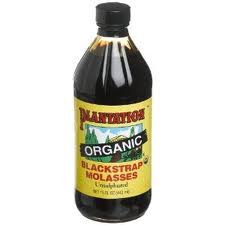
Aerate with the proper size air pump and brew in the water for 24 – 34 Hours. \
Smell the tea. The foam is not an indication that the tea is ready. It will foam. If you smell the tea after 30 hours and it still smells strong like molasses than you want to wait until it smells a little earthier. That will mean that the foodstock (molasses) was finally eaten by the bacteria and fungi etc. and it's safe to apply the tea.
(Put all of the ingredients directly into the water without any Mesh Bag unless you insist in which case use a #400 micron bag I prefer to let the tea settle and then strain the tea I'm going to spray the tea that day)
That’s it! You aren't trying to brew a nutrient tea with guano’s and other stuff in it. This simple tea is proven to be the most effective tool you can have in your garden. Use the nutrients separately and preferably pre-mixed into the soil or top dressed when needed.
- Without all the technical jargon, there are a few reasons that we want to use compost tea.
- Long story short the feeding frenzy in your soil will allow a kick of nutrients to become available.
- Possibly prevent infection or disease.
- Multiply the value of your Worm castings and stretch them further. 1 Gallon can be sprayed on ½ to 1 Acre of lawn!
- Fix problem plants! Most of the time, the soil is the cause of the issue and you can cut right the heart of the problem instead of putting a band aid on the surface.
Now grow brew your own tea and make some magic in your garden.
You can use this safely with every watering, but most effectively every week or so once the soil is living and healthy.
Foliar spray on the underside of the leaves and around the soil surface is another practical use for compost tea.
I hope that you found this article useful!


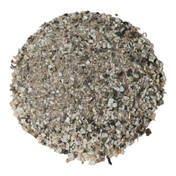
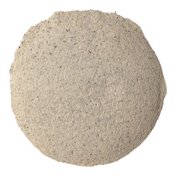
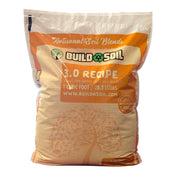
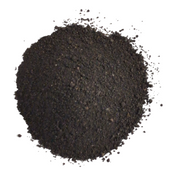
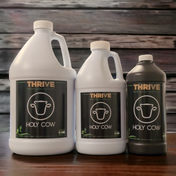
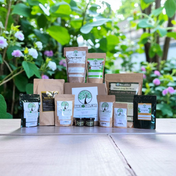
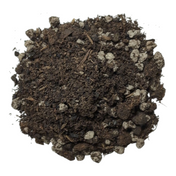
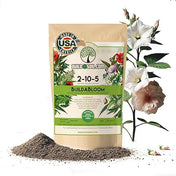
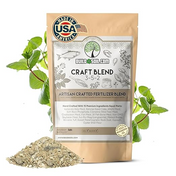
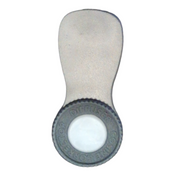
3 comments
Simple is better. Compost tea is easy. Dont believe all the mumbo jumbo about adding the kitchen sink. After going through alot of different companies jeremy and BAS have great products. Quality is important in organics. He actually cares. Unlike many other sites.
Hey Andy,
You are very welcome. You will absolutely love using compost tea’s. I find that with many of the faster growing plants out there a soil can have a hard time keeping up with nutrient delivery. Now, this isn’t always the case, but it is especially true in a “new” soil. With a compost tea you will kick start the nutrient cycling process in the soil. In a new soil where there may not be an abundance of life, or where the soil was allowed to get dried out, you will want to use compost tea FOR SURE. Don’t get all weird on compost tea, keep it simple and you will be happy!
So I recently made the switch to fully organic super soil. I did this by using organic soil and compost that I purchased from a local organic farm, and i mixed it with the nutrient packages that Jeremy sells on this site.
I bought a used electric powered cement mixer on Craigslist, and I highly recommend that other people look into using one to mix their own soil. For 150 dollars, I now have a great piece of equipment that will easily deal with the heavy work that can go into mixing soil with a shovel or rake. Plus….if I ever need to mix some cement, I am now covered in that area too.
I have to say that my plants have been loving this new soil mixture. So much so that I know I have to now take a leap into making my own compost tea. I figure if using the nutrients I received from this site work as good as they do, then all your praise towards compost teas should be acknowledged and utilized as well….
This was a great informative article and I look forward to seeing the results soon by using this information first hand. I plan to comment again once I have some hands on feedback.
Thanks for the good info and good products Jeremy.